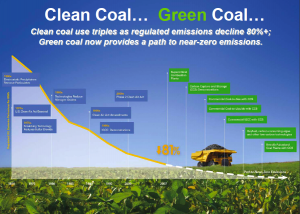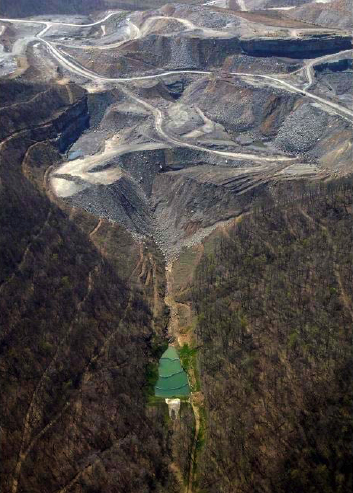Whether or not Congress passes climate legislation setting a cap on carbon dioxide, the future of coal in the United States looks bleak. Coal production in Central Appalachia is expected to decline by nearly 50 percent in the next decade, according to a new report from environmental consulting firm Downstream Strategies.
Coal-producing counties in southern West Virginia, eastern Kentucky, southwest Virginia, and eastern Tennessee can expect a sharp decline in production, which has already fallen substantially over the last 12 years. Production peaked in 1997 at 290 million tons and fell 20 percent by 2008, due largely to increased competition from other regions and types of fuel and the depletion of the most accessible coal deposits. Though there are still substantial coal reserves, the study predicts a 46 percent decline in production by 2020 and a 58 percent decline by 2035.
And that’s not even counting the effect of strict emissions regulations that would likely reduce future demand for coal and cause further decline in coal jobs. In the region examined in the report, 37,000 workers were either directly and indirectly employed by the coal industry in 2008, accounting for up to 40 percent of the jobs in some counties.
“Should substantial declines occur as projected, coal-producing counties will face significant losses in employment and tax revenue, and state governments will collect fewer taxes from the coal industry,” write report authors Rory McIlmoil and Evan Hansen. “State policy-makers across the Central Appalachian region should therefore take the necessary steps to ensure that new jobs and sources of revenue will be available in the counties likely to experience the greatest impact from the decline.”The authors recommend that affected states introduce renewable energy standards of 25 percent by 2025, as well as tax incentives for renewable production, grants, energy bond and loan programs, and job training programs to help workers transition to new industries.
And their message may be getting through: even the coal industry’s best friend in the Senate, Robert Byrd, has recently warned that coal states must “anticipate change and adapt to it, or resist and be overrun by it.”













